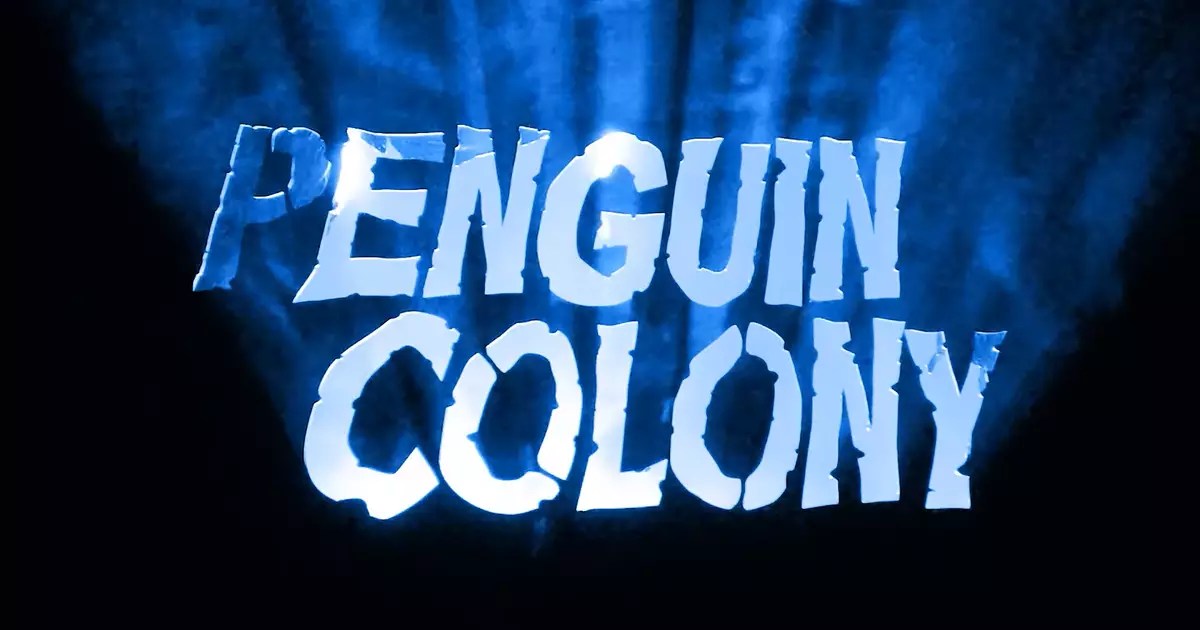In recent years, the idea of putting humans into fantastical worlds has become increasingly cliche, yet there are still opportunities to subvert expectations in game design. Enter the concept of a penguin-centric open world adventure—a seemingly lighthearted setting that morphs into a labyrinthine descent into cosmic horror. This isn’t merely about cute creatures waddling across icy landscapes; it’s a bold exploration of mythology, societal critiques, and the human subconscious wrapped in a shivering Arctic veneer. The creators, inspired by titles like *Umurangi Generation*—a game that unapologetically confronts issues of colonization and cultural identity—are pushing boundaries by infusing this penguin game with layered narratives and complex symbolism. The decision to involve Lenval Brown, the powerful voice behind Disco Elysium’s narrator, isn’t just about adding gravitas—it signifies a commitment to elevating this project into a storytelling juggernaut that can rival traditional horror or adventure genres.
The Confluence of Lovecraftian Horror and Antarctic Wilderness
The trailer’s aesthetic toxically evokes John Carpenter’s *The Thing*, conjuring images of paranoia and isolation that are quintessentially Lovecraftian’s nightmare. The icy expanse isn’t just a setting; it’s a character shaping the game’s uneasy atmosphere. Traversing the icy surface and delving beneath its icy exterior metaphorically mirrors the human tendency to seek out knowledge even at the risk of destabilizing sanity. Here, penguins become not merely adorable cartoon characters but vessels through which existential fears are projected. The notion of existing outside of time, manipulated by ancient entities—the Old Ones—serves as a chilling reminder of humanity’s fragile position within a universe governed by cosmic indifference. The game’s thematic core challenges the player to consider: are these creatures mere survivors, or are they unknowingly harbingers of an impending cosmic revelation beyond human comprehension?
The Cultural Layers and Political Underpinnings
Notably, the game’s developers come from a background of critical social commentary. *Umurangi Generation* was celebrated for its focus on decolonization and indigenous perspectives, and it seems this new penguin adventure will continue that legacy, perhaps critiquing Lovecraft’s problematic lore surrounding “foreign” lands and peoples. The trailer hints at linguistic diversity—possibly including lyrics in Māori—which signals an intentional subversion of traditional colonial narratives. Through this layer of cultural critique, the game isn’t merely about cosmic horror but also about confronting historical and ongoing injustices. It could serve as a mirror, reflecting the absurdity and brutality of colonial attitudes, even as it immerses players in an otherworldly mystery.
The Mechanics and Metaphors Encoded in Penguin Choices
Gameplay concepts—such as unlocking different penguins with distinct abilities—symbolize broader themes of diversity, adaptation, and resilience. Playing as a baby penguin that fits in small gaps yet cannot swim exemplifies how limitations can be both obstacles and unique perspectives. It’s an insight into how marginalized groups might navigate hostile environments, emphasizing that survival often depends on exploiting differences. These choices challenge players to think critically about how identity shapes experiences and gameplay, turning what seems like a simple mechanic into a profound metaphor for societal resilience. The game’s focus on underwater exploration also hints at subconscious depths—unseen fears, forgotten histories—that await discovery beneath the icy surface.
The Surreal Power of Iconography and Cosmic Queerness
The game’s whimsical yet cryptic references—like the mention of “penguin diagrams” and cosmic entities such as the Hordes of Old Ones—are not accidental. They evoke the surreal, the unknowable, and the chaotic. What’s striking is how this absurdist universe interrogates the very notion of innocence. Penguins, typically symbols of nature’s charm, are transformed into avatars of cosmic insignificance. The contention is not with their cuteness but with their potential role as unknowable messengers caught in the maelstrom of universal collapse. This audacious mashup of pop culture iconography—the beloved Rockhopper, the mystical penguin gods—coupled with philosophical musings reminds us that even in the most playful veneer, there lurks an unsettling truth: that beneath the surface, the universe is far stranger and darker than we dare to admit.
In this bold reinvention of penguin-themed gaming, nothing is quite as simple as it seems. Whether celebrating cultural diversity, confronting cosmic dread, or exploring resilience amid chaos, the game promises to challenge our perceptions of innocence and monstrosity alike. The winds are shifting—perhaps not just in Antarctica but within the very fabric of our collective imagination—yet amid this upheaval, a single truth endures: play is a form of resistance, and in these icy worlds, hope can still find a way to waddle forward.


Leave a Reply